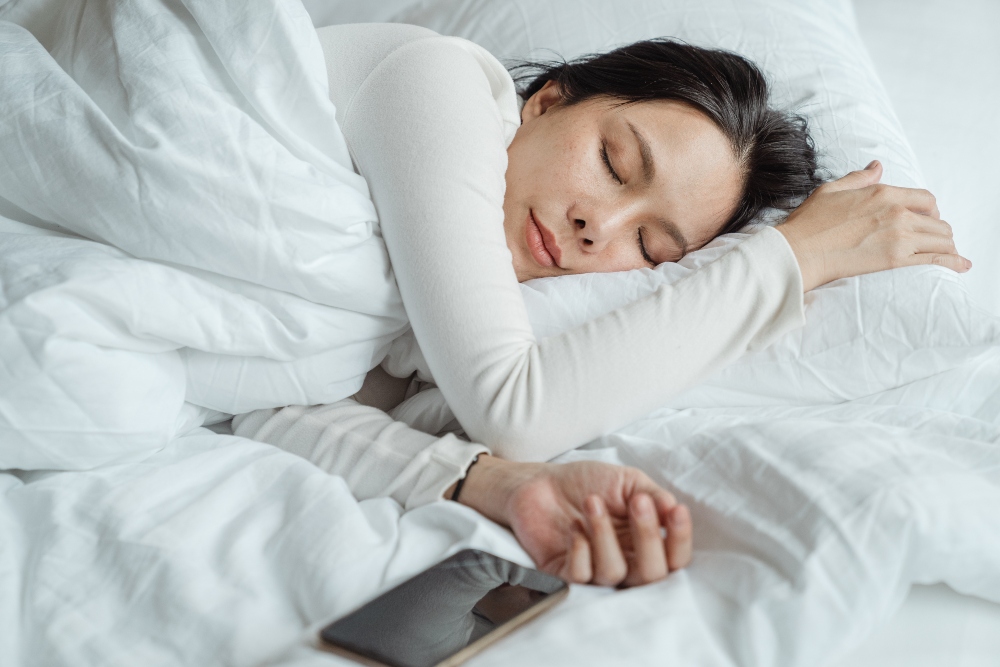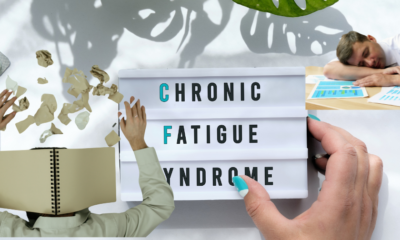Health & Fitness
5 Ways to Get a Better Night Sleep

There are so many reasons why it’s essential to make sure you’re getting enough quality rest every single night. Even though the cultural norm suggests that it’s better to grind and hustle, you can’t do that for extended periods of time. Sleep is necessary because it gives you the opportunity to refresh your body and mind. It’s much easier for you to be alert and present when you get enough sleep each night. Plus, it’ll help you ward off any diseases. If you’re finding that your quality of sleep isn’t good, it’s time to make the necessary adjustments. In order to improve your sleeping experience, consider the following tips.
1. Limit Your Caffeine Intake
One of the main reasons why people consume caffeinated beverages is so that they can stay awake and alert. However, when you’re trying to fall asleep, the last thing you want to feel is stimulation from coffee. This doesn’t mean you have to cut out your beloved morning beverage. This just means you have to have a cut-off point for when you’ll stop drinking caffeinated beverages. Whether it’s iced coffee, iced green tea, or a hot cup of caffeinated tea, try not to drink any more caffeine after 3 pm. If you’re able to cut off your caffeine consumption by 12 pm, this will help you even more. If you need a boost to get you through the afternoon slump, consider taking a B12 vitamin or an energy supplement that can help you maintain a steady flow of energy throughout the day.
2. Consider a Non-Addictive Sleeping Supplement
There are plenty of people who struggle to fall asleep early. They’re often considered night owls. Unfortunately, many night owls struggle to remain alert during the day because they’re not getting enough rest each night. In order to gently shift your schedule and your body’s circadian rhythm, consider taking a sleep supplement that contains ingredients such as melatonin, l-theanine, or lemon balm in order to naturally work with your body’s chemistry to fall asleep. Make sure you choose a non-addictive supplement so that you can develop a rhythm that’s naturally sustainable for your body.
3. Seek Professional Assistance
There are circumstances that call for professional assistance. If you’re dealing with conditions such as sleep apnea or sleep deprivation, a sleep provider can assist you in getting to the root of the issue. You might need prescriptions and medical devices to help you correct your sleeping issues as they’re directly related to other facets of your health. Whether you snore intensely or struggle with sleep apnea, don’t try to self-medicate. Seek out professional assistance as soon as possible.
4. Develop a Nighttime Routine
There are many people who love spontaneity. Yet, most people tend to thrive when they live within the confines of a routine. When you’re trying to improve the quality of your sleep, build a routine that helps your body and brain relax. You can start your nighttime routine two to three hours before bed. Listen to white noise like the waves crashing or raindrops. Take a warm bath. Dim the lights. Consider consuming chamomile tea that helps you relax. Eliminate electronics an hour before bedtime. All of these tasks can help you develop a routine that allows you to relax and prepare your mind and body for a good night’s rest.
5. Factor in Your Comfort
It’s not uncommon for people to get used to uncomfortable situations because they’re familiar. If this is true with bad relationships, toxic job environments, and terrible financial patterns, this is true with your sleeping quarters. You might be used to an uncomfortable mattress. However, that mattress is directly impacting the level of comfort you feel each night. You might need to change your mattress or invest in a mattress pad until you’re able to upgrade. Furthermore, consider the temperature of your room when you’re falling asleep. It’s very uncomfortable to fall asleep in muggy, humid, or warm temperatures. You might need to turn the temperature down on the thermostat one or two degrees before bedtime. It’s even a great idea to sleep with a fan near your bed. This can help you relax more and fall asleep sooner.
In your effort to improve your sleep, consider tracking all of your data. Pay attention to what you eat before you go to bed. Pay attention to how you feel in the hours leading up to bedtime. Pay attention to how you feel once you’ve received a certain number of hours each night. As you track different elements to figure out what works, you’ll be able to cultivate a good routine that’s reliable and beneficial for your sleep experience and your overall health.
-

 Press Release5 days ago
Press Release5 days agoBellarium ($BEL) Price Prediction: Could It Hit $5 by 2026?
-

 Press Release2 days ago
Press Release2 days agoClinical Trials Market Set for Robust Growth, Driven by Drug Development Surge and Digital Innovation
-

 Business4 days ago
Business4 days agoHow Managed IT Solutions Help Small Teams Compete at Enterprise Scale
-

 Press Release3 days ago
Press Release3 days agoIndustrial Boiler Market Expected to Surpass USD 24.4 Billion by 2035 Amid Growing Demand for Energy Efficiency and Industrialization
-

 Press Release3 days ago
Press Release3 days agoPreventive Vaccines Market to Witness Strong Growth by 2035
-

 Press Release3 days ago
Press Release3 days agoGreen Bio Chemicals Market Poised for Sustainable Growth amidst Global Shift to Eco-Friendly Alternatives by 2035
-

 Press Release3 days ago
Press Release3 days agoFill-Finish Pharmaceutical Contract Manufacturing Market Expected to Flourish Amid Biopharmaceutical Boom and Global Outsourcing Trend by 2035
-

 Press Release3 days ago
Press Release3 days agoPet Food Nutraceutical Market Set for Robust Expansion Amid Rising Demand for Pet Wellness by 2035






























